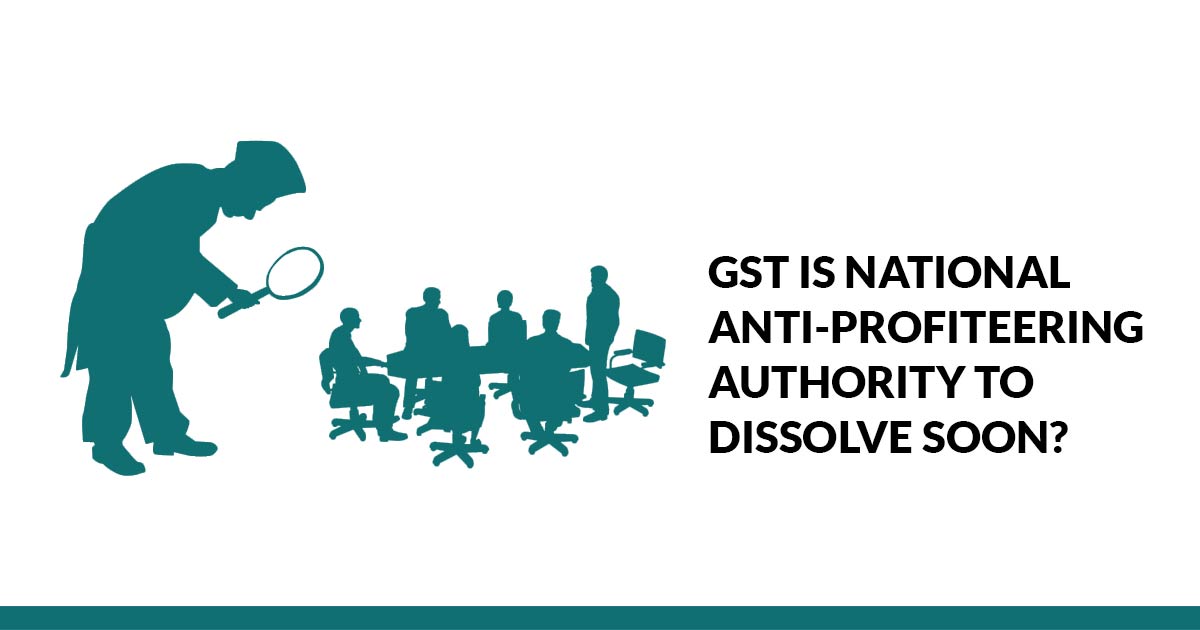The National Anti-profiteering Authority (NAA) was touted as the watchdog for passing benefits from GST rate reduction or ITC to end consumers. One year post its establishment, the NAA has little to show in its kitty apart from a few paltry penalties against four companies. However, the government has maintained its earlier stand that NAA would tinker with only those cases with potential mass impact.
NAA was set up for a period of two years and it is extremely unlikely that the body currently chaired by Mr. Badri Narain Sharma, a Rajasthan cadre IAS officer of 1985 batch, will get an extended run. It has so far received 169 complaints of profiteering and additional 70 complaints received by the various state-level screening committees.
A few points which stake up against the National Anti-profiteering Authority include:
- Concerns over the constitutional validity of the NAA
- Only eleven complaints heard out of 250 complaints received
- AAR Rulings incur great cost on government treasury in terms of resource and labor employed
- No proper guidelines on how to pass benefits
Ambivalent Ruling
The AAR rulings have itself been met with a fair share of controversies and discrepancies:
- Compliance Models suggested by AAR for passing GST benefits to consumers are complex and burdening on businesses as seen in the Hindustan Unilever dealer case. Even if the business owners want to pass benefits fair and square, the difficulties faced during price and grammage changes for passing on of GST benefits must also be considered.
- The NAA order on Maggi noodles dealer clearly undermines the impracticality in forcing GST benefit sharing at each stock keeping unit (SKU) level. Further, no provisions for averaging out benefits make the entire exercise excruciatingly painful.
- Experts suggest that the self-confession of profiteering by FMCG giants like HUL as well as Nestle had nothing to do with NAA. The disclosures would have taken place even if NAA was not there in the first place.
GST was a drastic shift in India’s Indirect tax history. Information Technology forms the backbone of the current GST Framework. The NAA has the power to order businesses, if found guilty, to reduce prices or pass benefits to customers. In some cases, the NAA can even ask for payment of interests on benefits to the consumer.
In case the complexities prevent passing of benefits directly to end consumers, the NAA can also order guilty businesses to deposit benefits in the consumer welfare fund within a fixed time window. In the worst of cases, the NAA can force penalty or even cancel GST registration of the businesses. However, despite these powers, the NAA has little to show on paper. For the time being it seems a passing fad on the GST Timeline.










